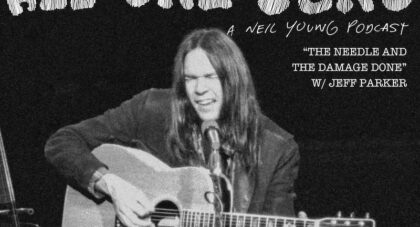Chances are Jim O’Rourke’s name is somewhere in your record collection. As a musician and producer, he’s worked with some of the most important artists and bands of the last three decades: Sonic Youth, Wilco, Bill Callahan, Stereolab, Joanna Newsom, John Fahey, Beth Orton, and dozens more. As a solo artist he’s stayed busy too, balancing varied experimental efforts with knotty singer/songwriter LPs like his 2001 classic Insignificance, utilizing elements of progressive rock, jazz, Americana, and pop to convey his witty, hangdog observations and wisecracks.
In many ways O’Rourke’s new album Simple Songs picks up where 2009’s 38-minute instrumental album The Visitor left off. The new record twists and turns like that one, but here O’Rourke breaks the elements down into shorter song forms, and once again he’s at the microphone, singing over piano pop, orchestral folk, and strutting rock (dig the Steely Dan vibes of “Half Life Crisis”). Recorded at Steamroom Tokyo, O’Rourke’s studio in Tokyo, Japan, where he’s lived since 2005, Simple Songs is an immensely satisfying record, and like O’Rourke’s best, it rewards and unfolds more each listen. Aquarium Drunkard called O’Rourke to discuss the record’s long gestation, O’Rourke’s high school influences, and riff on the “dishonesty of earnest men.”
Aquarium Drunkard: You worked on this record for five years?
Jim O’Rourke: Actually, it was about six years.
AD: How did you spend those six years?
Jim O’Rourke: Well, how it happened was…on the old records I was playing with Glenn Kotche and Darin Gray and [they] were they only people on the planet I could do those records with. It had to be them. When Glenn became “The Glenn Kotche,” deservedly so I mean, it became more and more difficult to get together and work on things. I didn’t want to do that stuff with anyone else, so I didn’t. [Laughs] Until I met [Yamamoto] Tatsuhisa, who plays drums on this record, about six or seven years ago by accident. We just happened to be on the same bill, and it was like a time machine going back to when I first saw Glenn play on stage with Edith Frost. It wasn’t like I all of the sudden said, “Oh, I want to make another band record.” It was that all of the sudden the possibility of doing that was open again. Then I called Sudo [Toshiaki] who plays bass on the record, who’s been a friend of mine for 20 years — he was the original drummer in Melt-Banana. So, I just tried to see what it would be to actually play with drums and bass again, doing my own things. Then when we brought in [pianist] Eiko Ishibashi, who makes her own records for Drag City.
The first two years…I was almost like a drill sergeant. Not like a drill sergeant; it wasn’t like Full Metal Jacket or anything, but I had to get them to play with the particular nuance and the sense of rhythm that I specifically want. It really was a period of getting them to play like…it sounds awful to say, “To play like I had three clones,” because obviously I can’t play drums like him, and I definitely can’t play piano like Eiko, but they had to understand the particular rhythmic feel that’s very specific to me. We took the time to get it to that point. There are versions of this record from the first two years. It’s shocking how different they are, just rhythmically and the feel and everything. The timing, the pacing, the shading -- it’s so shockingly different. We just needed that time, and I’d never had that time before with a band.
AD: What was the general reception to your method? Was it a comfortable fit to start?
Jim O’Rourke: They had to get used to how picky I am. It’s not like I’m picky like that movie Whiplash. It’s called Session here in Japan, that movie about the drummer. I haven’t seen it, but I’ve seen a trailer, so I know what it is, and we weren’t doing that. I can be insanely particular, but then ambiguous on purpose. I think they weren’t used to someone being that particular but they didn’t have a problem with it. They’re still around six years later, so they must be okay with it.
Only the good shit. Aquarium Drunkard is powered by its patrons. Keep the servers humming and help us continue doing it by pledging your support.
To continue reading, become a member or log in.


